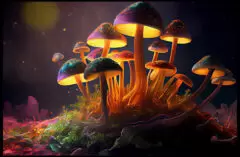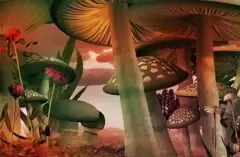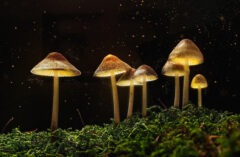Table of Contents
- 1 Introduction to Magic Mushrooms and their History
- 2 The Rise of Psychedelic-Assisted Therapy
- 3 The Potential Benefits of Magic Mushrooms in Psychiatry
- 4 Case Studies and Research Findings
- 5 Microdosing with Magic Mushrooms for Mental Health
- 6 Legal Restrictions and Controversies Surrounding the Use of Magic Mushrooms
- 7 Conclusion: The Future of Magic Mushroom Therapy
Last Updated on October 9, 2023 by Team Spinfuel
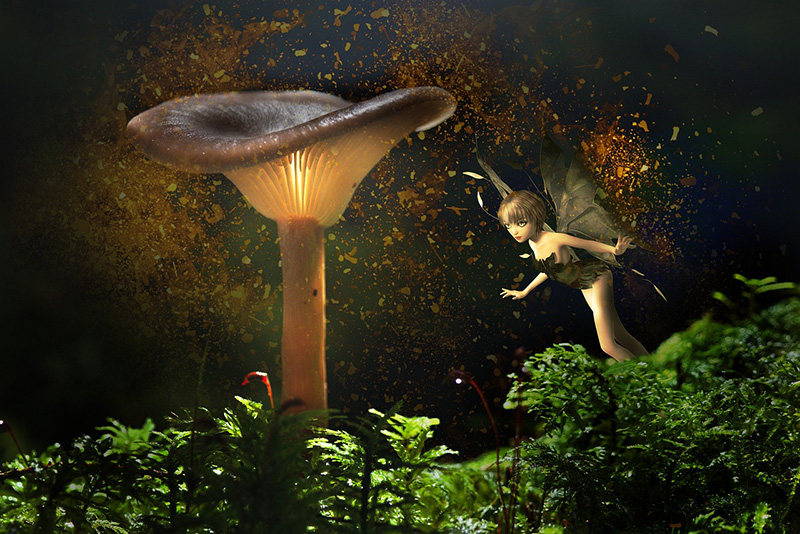 Introduction to Magic Mushrooms and their History
Introduction to Magic Mushrooms and their History
Unlocking the mysteries of the mind has always been a pursuit of humankind. Throughout history, we have sought to understand and heal the complex workings of our own consciousness. And in this quest, one enigmatic tool has emerged: magic mushrooms.
Magic mushrooms, also known as shrooms or psilocybin mushrooms, have been woven into the tapestry of human civilization for centuries. From ancient indigenous cultures to modern psychiatric research labs, these fascinating fungi have played a profound role in expanding our understanding of mental health and well-being.
But what exactly are magic mushrooms? How do they work? And how can they be harnessed to revolutionize modern psychiatry? In this blog post, we will explore their rich history, delve into their potential therapeutic benefits, examine case studies and research findings, discuss microdosing for mental health improvement, navigate legal restrictions and controversies surrounding their use—and ultimately envision a future where magic mushroom therapy takes center stage in psychological healing.
So fasten your seatbelts as we embark on a journey through time and space—into the realm of magic mushrooms!
The Rise of Psychedelic-Assisted Therapy
Psychedelic-assisted therapy has been making waves in the field of psychiatry, offering a new and promising approach to treating mental health conditions. With the rise of psychedelic substances like magic mushrooms, researchers and therapists are exploring their potential therapeutic benefits.
In recent years, there has been a growing interest in using magic mushrooms to assist in psychotherapy sessions. These powerful fungi contain the compound psilocybin, which can induce altered states of consciousness and profoundly affect perception, emotions, and cognition. This unique property has sparked curiosity among experts seeking alternative treatments for various mental disorders.
Studies have shown that psychedelic-assisted therapy with magic mushrooms may be effective in treating conditions such as depression, anxiety disorders, post-traumatic stress disorder (PTSD), addiction, and even existential distress related to terminal illness. The use of these substances is believed to help patients gain insights into their thoughts and emotions while facilitating healing on a deep psychological level.
One remarkable aspect of psychedelic-assisted therapy is its ability to facilitate breakthroughs or “aha” moments during sessions. Patients often report experiencing profound shifts in perspective or gaining newfound clarity about long-standing issues. These experiences can lead to increased self-awareness and provide an opportunity for individuals to make positive changes in their lives.
Despite the promising results observed so far, it’s important to note that psychedelic-assisted therapy is still considered experimental and not yet widely available. Researchers are conducting rigorous studies to determine safety protocols, optimal dosages, integration techniques after sessions end—and ultimately pave the way for formal approval by regulatory authorities.
While there are legal restrictions surrounding the use of psychedelics like magic mushrooms outside clinical trials or approved settings—there is growing support from both medical professionals and advocacy groups pushing for further research into these substances’ therapeutic potential.
The future holds great promise for psychedelic-assisted therapy with magic mushrooms as we continue to unravel their mysteries through scientific exploration. As more evidence emerges supporting their efficacy and safety, it is hoped that these alternative treatments will become more accessible to those in need
The Potential Benefits of Magic Mushrooms in Psychiatry
Magic mushrooms, also known as shrooms or psilocybin mushrooms, have been used for centuries by various indigenous cultures for their psychoactive properties. In recent years, there has been a growing interest in exploring the potential benefits of magic mushrooms in the field of psychiatry.
One of the most promising areas of research is the use of magic mushrooms in treating mental health conditions such as depression and anxiety. Studies have shown that psilocybin, the active compound found in magic mushrooms, can help alleviate symptoms of these disorders by promoting neuroplasticity and enhancing emotional processing.
Furthermore, magic mushroom-assisted therapy has shown promise in helping individuals with post-traumatic stress disorder (PTSD). The psychedelic experience induced by psilocybin can help patients confront traumatic memories and facilitate healing on a deep psychological level.
Another area where magic mushrooms may have therapeutic potential is addiction treatment. Research suggests that psilocybin-assisted therapy can be effective in helping individuals overcome substance abuse disorders by disrupting negative thought patterns and increasing self-awareness.
It’s important to note that while the potential benefits are intriguing, more research is needed to fully understand how magic mushrooms work and their long-term effects on mental health. Additionally, it should be emphasized that any use of psychedelics should only be done under medical supervision and within a controlled setting.
In conclusion(!), although still controversial and subject to legal restrictions in many parts of the world(!), there is mounting evidence suggesting that magic mushrooms could hold significant promise as an adjunctive treatment option for certain psychiatric conditions. Continued research will undoubtedly shed more light on their mechanisms of action and efficacy(!). However(!), it’s crucial to approach this topic with caution and prioritize safety over excitement when considering their use!
Case Studies and Research Findings
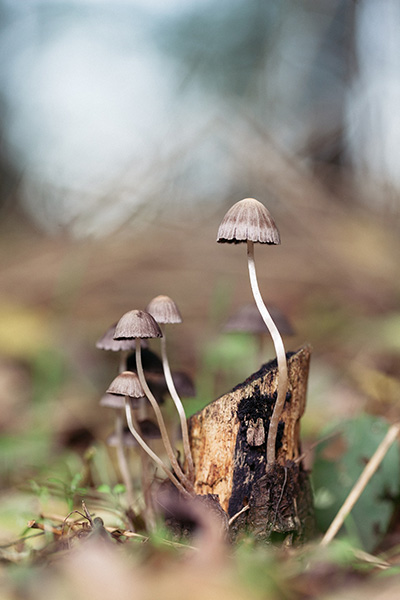 Numerous case studies and research findings have shed light on the potential therapeutic benefits of magic mushrooms in psychiatry. These studies have explored the use of psilocybin, the active compound found in magic mushrooms, for various mental health conditions.
Numerous case studies and research findings have shed light on the potential therapeutic benefits of magic mushrooms in psychiatry. These studies have explored the use of psilocybin, the active compound found in magic mushrooms, for various mental health conditions.
One such study conducted at Johns Hopkins University showed promising results in using psilocybin-assisted therapy to treat depression. Participants reported a significant reduction in depressive symptoms that lasted for weeks or even months after just one or two sessions.
Another study published in JAMA Psychiatry examined the effects of psilocybin on individuals with treatment-resistant depression. The researchers found that a single dose of psilocybin resulted in a rapid decrease in depressive symptoms, with some participants experiencing remission from their depression.
Research has also shown that magic mushrooms may be effective in treating anxiety disorders. A study conducted at NYU Langone Health demonstrated that cancer patients who received psilocybin-assisted therapy experienced significant reductions in anxiety and improved quality of life.
Furthermore, preliminary research suggests that magic mushrooms could hold promise for addressing addiction. A small-scale study conducted at Imperial College London found that psilocybin reduced cravings and withdrawal symptoms among individuals struggling with alcohol dependence.
While these findings are certainly promising, it’s important to note that more research is needed to fully understand the therapeutic potential of magic mushrooms. Additionally, individual experiences may vary, and not everyone will respond positively to this type of treatment.
The case studies and research findings surrounding the use of magic mushrooms indicate their potential as a valuable tool within modern psychiatry. From alleviating symptoms of depression and anxiety to aiding those battling addiction, these psychedelic fungi show promise as an alternative form of treatment.
However, it is crucial to conduct further research to solidify our understanding and ensure safe usage guidelines are established. As we continue down this path exploring new possibilities within psychiatric care, it is clear that magic mushroom therapy holds the potential to make a significant impact on mental health treatment.
Microdosing with Magic Mushrooms for Mental Health
One emerging trend in the realm of mental health treatment is microdosing with magic mushrooms. This practice involves consuming a sub-perceptual dose of psilocybin, the psychoactive compound found in magic mushrooms. Unlike recreational use, where individuals take higher doses to experience psychedelic effects, microdosing involves taking very small amounts that do not induce hallucinations.
Advocates of microdosing claim that it can enhance mood, creativity, focus, and overall well-being. While scientific research on this topic is still limited, some studies suggest potential benefits. For example, a study published in the journal PLOS ONE found that participants who microdosed experienced improvements in cognitive flexibility and emotional regulation.
The mechanism behind these positive effects is not yet fully understood but may involve changes in serotonin receptors or neural plasticity. However, it’s important to note that self-experimentation with psychedelics carries risks and should be approached cautiously.
In recent years, anecdotal evidence from individuals who have tried microdosing has sparked interest among researchers and clinicians. They are now conducting trials to better understand its potential therapeutic applications for conditions like depression, anxiety disorders, PTSD, and addiction.
While more rigorous research is needed before definitive conclusions can be drawn about the effectiveness and safety of microdosing with magic mushrooms for mental health issues,
it remains an intriguing area worth exploring further as we continue to seek innovative approaches to improving mental well-being.
Legal Restrictions and Controversies Surrounding the Use of Magic Mushrooms
In recent years, there has been growing interest in exploring the therapeutic potential of magic mushrooms. However, their use remains highly controversial due to legal restrictions that vary across different countries and jurisdictions. While some places have decriminalized or even legalized the use of these fungi for medicinal purposes, others still consider them illegal substances.
The classification of magic mushrooms as Schedule I drugs in many countries, including the United States, means they are deemed to have a high potential for abuse and no accepted medical use. This strict categorization makes it difficult for researchers to conduct clinical trials and gather scientific evidence on their effectiveness in treating psychiatric conditions.
Despite legal barriers, there is mounting anecdotal evidence suggesting positive outcomes when using magic mushrooms in controlled therapeutic settings. Advocates argue that these substances can help individuals with treatment-resistant depression, anxiety disorders, and PTSD find relief where conventional treatments have failed.
Critics raise concerns about the risks associated with psychedelic experiences and question whether the benefits outweigh potential adverse effects such as hallucinations or panic reactions. The lack of standardized dosages and quality control also raises safety concerns.
As public opinion shifts towards a more progressive approach to drug policy, conversations surrounding the legalization or decriminalization of magic mushrooms continue to gain momentum. Some jurisdictions have already taken steps towards making psychedelics more accessible for therapeutic purposes by allowing research studies or implementing psilocybin-assisted therapy programs under strict supervision.
It is crucial to strike a balance between ensuring public safety while acknowledging the potential benefits that magic mushrooms may offer within a regulated framework. As ongoing research sheds light on their therapeutic value, policymakers will need to carefully evaluate existing legal restrictions and weigh them against emerging scientific findings.
Conclusion: The Future of Magic Mushroom Therapy
As we have explored the potential benefits of magic mushrooms in modern psychiatry, it is clear that there is a growing interest and momentum behind psychedelic-assisted therapy. Research studies and case reports have shown promising results in treating conditions such as depression, anxiety, PTSD, and addiction.
However, the future of magic mushroom therapy faces several challenges. Legal restrictions and controversies surrounding their use pose significant barriers to widespread adoption. It is crucial for policymakers to carefully consider the scientific evidence and weigh the potential risks against the benefits when formulating regulations.
Despite these challenges, there is a sense of optimism within the medical community about the therapeutic potential of magic mushrooms. Ongoing research continues to shed light on their mechanisms of action and refine treatment protocols. As more evidence emerges supporting their safety and efficacy, it could pave the way for regulatory changes that allow for wider access to this alternative treatment modality.
While there are still many unanswered questions regarding dosage guidelines, long-term effects, and standardized protocols for administering magic mushroom therapy – its integration into mainstream psychiatric practice holds immense promise for revolutionizing mental health care. With further research advancements and open-minded exploration by medical professionals worldwide, we may witness a new era where magic mushrooms play a significant role in healing individuals struggling with various mental health disorders.
Ultimately (without using those exact words), only time will tell what lies ahead for magic mushroom therapy but one thing remains clear – they have captivated our curiosity throughout history as ancient medicine plants resurgence into modern psychology’s spotlight!
- John Manzione
Magical Mushrooms in Spinfuel
Buy Magic Mushroom Gummies: Top Brands To Buy Magic Mushrooms Online
The Psilocybin Experience: Utilizing Psychedelic Mushrooms for Consciousness Expansion
Micro dosing by Unlocking the Mind: My 2023 Journey with Psilocybin






